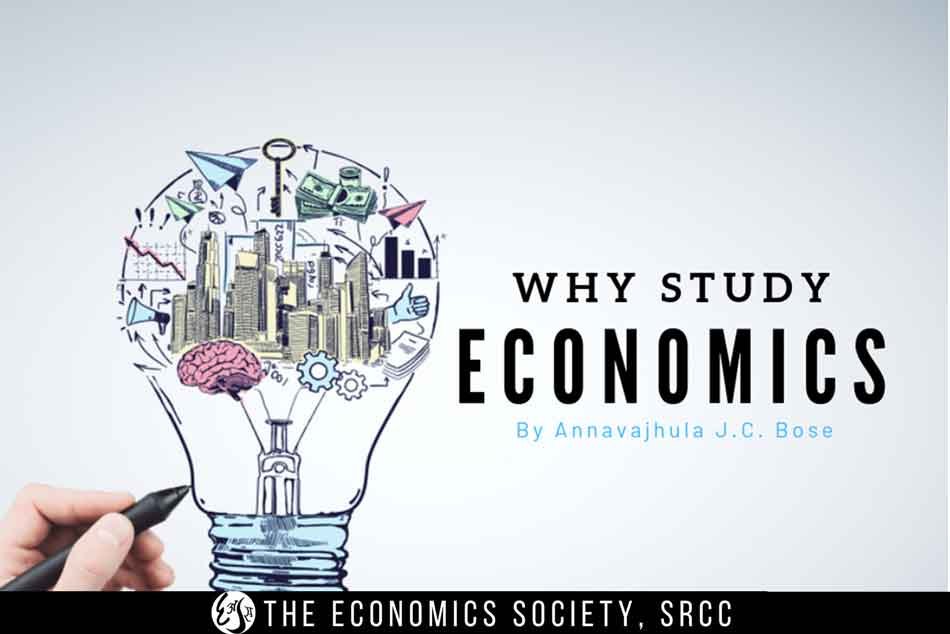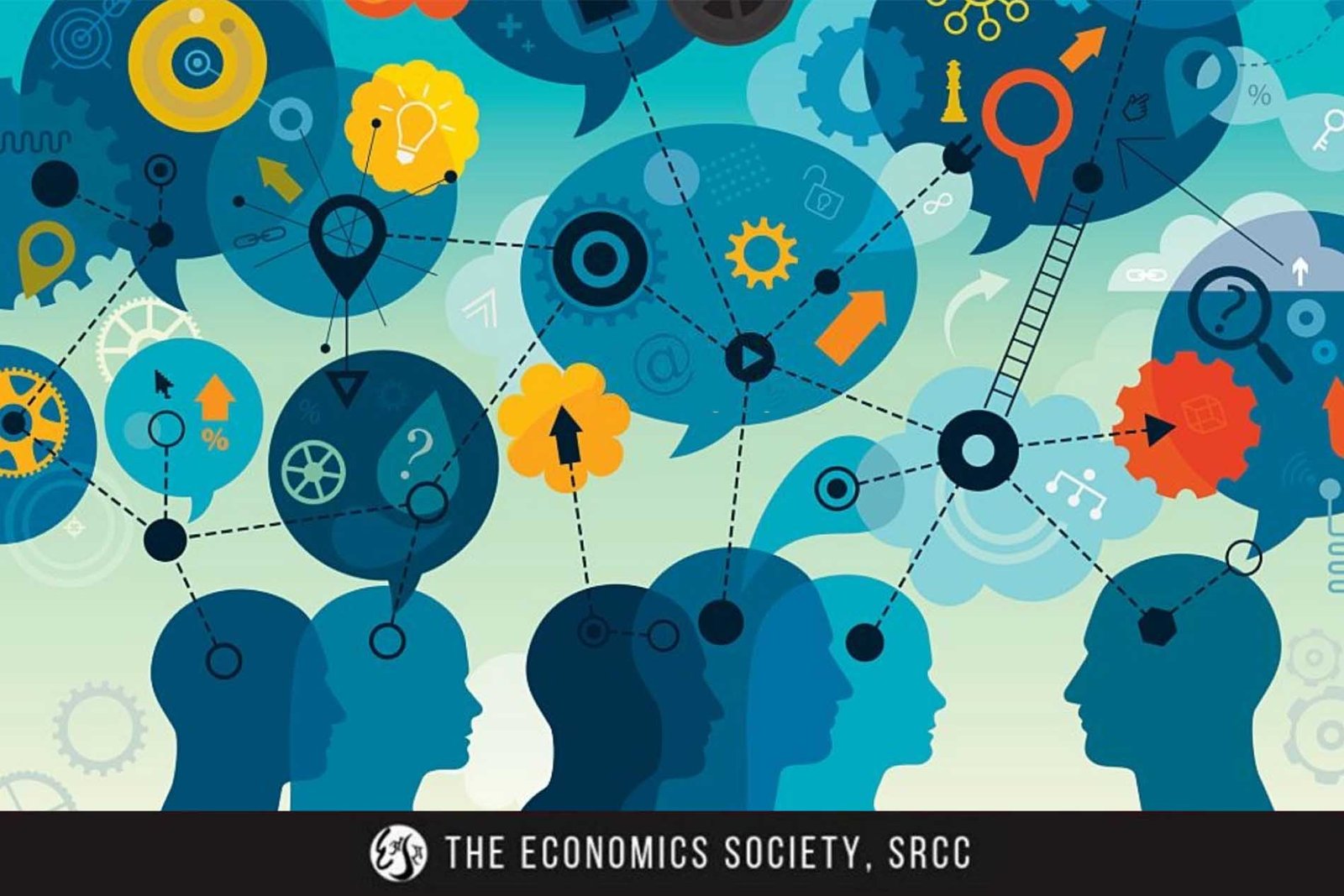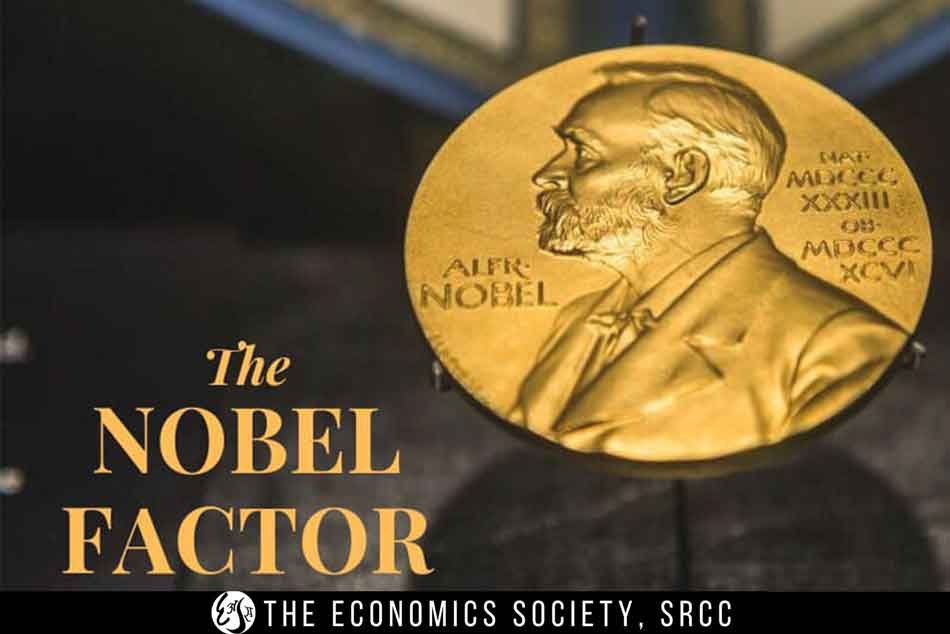
Why Study Economics

Suppose you are seeking admission to economics courses and you are provoked to answer the question why you want to do economics, and not entrepreneurship based on organic farming and ‘goshala’, or rooftop kitchen gardening, what will you say? Or, more profoundly, economics is a confusing subject and most economists are confused too, and so why do you prefer lack of enlightenment? You might not get admission in a minority college interviewing you this way, simply because you are unable to articulate your answer about to be or not to be in economics. Think about it. Much can be said on both sides but how do you justify your choice? In this post, I deal with some motivations with which people usually come to doing economics.
You write your own motivations, for doing as also not doing economics, and share with your fellow students. Write 800 to 1000 words. Become an argumentative writer. Economics Honours in Delhi University is very much hot in demand because this course facilitates entry into a wide variety of spicy careers. A masters degree or an MBA right after this undergrad course enables one to get high paying jobs in the private sector, especially with MNCs and KPOs. There are consultancy firms which absorb econ graduates as executive consultants, economists or economic advisors. This brings to fore the question: What do economic advisors do? A best reading one can do in relation to this question is that of Stein (1992).
I can give you a copy of this. On the basis of more than half a century of experience as an economic adviser in the American government, he had said that much of the advisable economics, i.e. the economics that is usable for advising on public policy, is at the level of the introductory undergrad course! In the government sector, there are prestigious jobs offered by the public sector undertakings, the Reserve Bank of India and the Indian Economic Service. Very often students with econ background are found preparing for Indian Administrative Service and other civil services. U may also choose, with conviction, to be a development practitioner in the local, regional, national and global NGO sector. One can combine undergrad econ with LLB to seek lucrative careers in Corporate Law. Economic journalism is another fascinating option for those who have a flair for writing. This is not all. There are think-tanks like Niti Ayog, Department of Industrial Policy and Promotion, Center for Policy Research and the like which absorb econ graduates for the analysis of economic issues and offering policy recommendations. Economic forecasting is a job economists do despite so many jokes against them in this regard.
You must straightaway start enjoying the collection of jokes at https://www3.nd.edu/~jstiver/jokes.htm There are companies such as Deloitte, Bain & Co. or McKinsey which offer smart job profiles like financial or investment analysis. Value investing is a hot pursuit these days. In this connection there is a book titled, “Warren Buffett Invests Like a Girl: And Why You Should, Too”, which must be read not by girls alone, but by boys too. Those students who like statistics, figures and analysis with number crunching can apply to firms for the position of a statistician. Banking and financial services including financial planning is another amazing field of attraction for economists. Acturial science and insurance sector as also CA and CFA studies also attract econ graduates. Lastly, if one has a desire to pursue economics purely as an intellectual exercise to theorise or understand the world or prescribe policy solutions, then one can become a professor at B-schools and universities where one can combine teaching and research, generate publications, and go a long way in the profession to win small and big prizes/awards.
There are indeed high level research cum teaching cum consultancy jobs, coming up, in the mushrooming private universities with or without collaboration with foreign universities, for those with a PhD and ‘global desi’ or ‘global choice’ publications in economics. But doing a PhD and publishing papers in top academic journals is not easy. Nor is it sexy or saxy (i.e. like blowing the western saxophone or the Indian ‘shankh’). While one can find good enough reasons to doing a PhD, and eventually succeed without suffering from phd, i.e. “permanent head damage”, we can also know how there isn’t anything darker than doing a PhD. Very few people succeed in writing, especially with the prowess of communicating with the non-technical, lay-people as well. Furthermore, a downside of being an overly critical intellectual is that the corporates and politicians can take you to task with humoungous defamation notices and other life-threatening harassment, and you cannot take them on unless you have deep pockets and unless you also can mobilise matching muscle power! You have to thus evaluate the costs and benefits of being an economic and political intellectual.
The typical undergrad and postgrad economics courses are heavily loaded with the subject matters emanating from the dominant or mainstream or neoclassical economics school of thought which demands high level mathematical and statistical competencies. The heterodox school of thought is typically shunned by the mainstream school. But lately the ideas of the heterodox school as also inter-disciplinary perspectives (with inputs from Psychology, Biology, Sociology, Biophysics, Politics, Anthropology) have become more relevant and appealing to better understand the complex and harsh socio-economic realities. The heterodox school is an umbrella term to capture the diversity of approaches to economics by way of the Classical School, the Marxist School, the Developmentalist School, the Austrian School, the Schumpeterian School, the Keynesian School, the Old and New Institutionalist Schools, The Behaviouralist School, the Feminist School, the Ecological School and the like. In this connection, you must read Chang (2014). The central point is that the prospective econ student must note that there is really no single way of doing economics.
Let there be a hundred schools to contend, so to speak, in order to throw light on how people behave and the economy actually works in the real world and how the economy can be changed for the better, i.e., how it can be made not to serve only a tiny minority. In light of the above, I suggest that prospective economics students must take and study economics as the battleground between the mainstream and heterodox schools of thinking. Such a reading will help them obtain the deep and wide motivation to pursue economics which otherwise might appear as a hard and boring as also esoteric or monotheistic and unrealistic subject, and as such might induce one to surely suffer from brain-fade and take a pillow and go to sleep, so to say! Who knows, such a reading might also induce you to become a visionary and write romantic poetry, for instance, like the poem by Della Duncan, a student of Economics for Transition at the Schumacher College, UK, as follows: What is Economics? Economics is our relationship with ourselves, How we use our time, what we do for leisure, our pace, Our ratio of being to doing, Our connection to our passions, our hobbies, That which we can call our own.
Our locus of control, Our sense of self-worth, Our relationship with time, seasons, How we define our identity, Our past, the quality of our present, how we envision our future. Our freedoms, our constraints, How we meet our needs, Our role in society, our mythopoetic identity. Economics defines and limits our power, our status. Economics gives us voice, votes. Economics is our relationship to each other, Whether we see each other as collaborators or competitors, separate or interconnected. Economics is our level of trust and the quality of our interactions, How we manage our housework, our child rearing, How we care and get cared for, What we give and what we get, Economics is our relationship to Earth, Our connection to land, Our sense of belonging, What we build and how we build it, What and how we eat, where our food comes from, and what happens to our waste. Whether we see the natural world as a supply house or sewer, A battlefield or lover, An animate being or our larger Self.
Economics alienates, subjugates, co-creates, and empowers, Economics is myth and fact, crisis and opportunity, alive and lifeless, What is not economics? Economics is not simply the bottom line, the marketplace, the true cost, or the bank note, It’s not our first kiss, Our dreams, Our death, Or the conversations between trees. Economics is how we make meaning
By: Annavajhula
J.C. Bose Department of Economics, SRCC.
References
Chang, Ha-Joon. 2014. Economics: The User’s Guide. A Pelican Introduction. Stein, Herbert. 1992. What Do Economic Advisors Do? Span, May.


